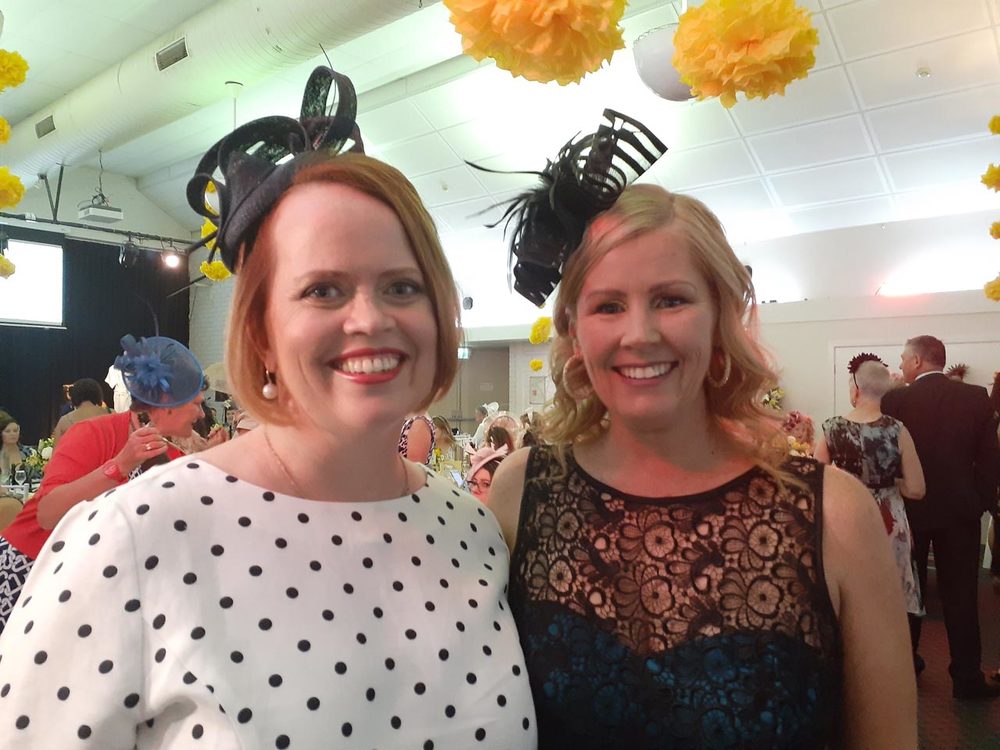SUNDAY PROFILE: Dr Sally Butchers: surgeon and fundraiser
Liina Flynn
09 November 2019, 8:36 PM
 Doctor Sally Butchers, general surgeon at Lismore Base Hospital.
Doctor Sally Butchers, general surgeon at Lismore Base Hospital.Tregeagle-based surgeon Doctor Sally Butchers not only saves lives in the surgery – she’s also danced for a cancer charity.
Sally is one of the general surgeons at Lismore Base Hospital - and she’s a dedicated fundraiser whose work has been showcased in a new podcast series called Destination Medicine.

“From a young age, I always wanted to be a doctor,” Sally said.
“My father was an anaesthesiologist and my mother was a nurse.”
Sally has been living in the Lismore area for 12 years and loves working in a regional area.
She’s passionate about bringing quality care to people who don’t live in major cities and wants to encourage other medical professionals to bring their skills to regional areas.
Sally said she moved up to the Northern Rivers because the rural lifestyle appealed to her.
“I grew up in Sydney and there’s a big difference between working in a regional area and a city - there’s no traffic,” she said.
“I originally came here as an intern and then as a surgical registrar and liked the hospital and the support I received here from the medical community - and it’s a beautiful area to live in.”
“In a smaller community you get to know people at local markets and around town and see how things are going for them,” she said.
On call
As an on-call surgeon, Sally operates in public and private practices in the Northern Rivers, including at Lismore Base Hospital.
“When you’re on call, you don’t know what will comes through - it could be an appendix or bowel obstruction – or a leg wound that needs to be cleaned and closed, or a hernia trauma,” she said.
“Most of the surgeries I do are elective and so we know what we are looking at.”
Sally said the most common operations she does are relating to skin cancers, hernias and gall bladders.
“We have an amazing oncology department at Lismore Base Hospital and it’s great that people no longer have to travel to the Gold Coast and Brisbane to get cancer treatment,” she said.
“And the treatments for breast cancer and melanomas has come on so far, patients know they have a better chance of survival.”
Training
To become a doctor, Sally spent six years studying medicine at Newcastle University before doing post graduate training and an internship in Sydney.
“There’s a lot of study and it doesn’t stop there,” she said.
“I’m just back from a conference in Ballarat and I’m always learning and staying up to date with medical trends.”
Sally has been the Chair of the rural section of the College of Surgeons for nine years and supports junior doctors who want to be surgeons.
“I run training seminars presentations for junior doctors,” she said.
“And I take part in medical summits to see how we can help advocate for rural communities to have good medical professionals train, work and live here.”
First operation
Sally remembers the first operation she saw.
“I was in year 10, doing work experience at a children’s hospital and was an observer at the operating theatre for the first time,” she said. “I loved it.”
Then, when she was learning to be a surgeon and make surgical incisions, Sally said she would always be with experienced doctors in the operations and attached to a team.
“The training was on the job – we would assist and then be allowed to scrub in with the doctor and help - that’s why training takes so long,” she said.
“These days, there are more simulations and online trainings.
“The more you hold the scalpel in your hand and performs surgeries, the more comfortable you are doing them.
“If I come across something I’ve not seen before, I phone a colleague and get advice and assistance.
“I like problem solving. It’s a bit like being a skilled detective and coming up with a solution.
“If a kid has abdominal pain, I work out it’s the appendix or something else.
“It’s a privilege and responsibility to have someone’s life in your hands - and you have to be mindful that none of us are perfect 100% of time.
“I’m grateful that people are willing to let me look after them.”
When dealing with life and death, Sally said having a supportive team of people around you is important.
“You know you are not dealing with it on your own,” she said.
“I chose to work in Lismore because I knew I could surround myself with good people who support me – not only at work, but outside work too, from my friends and my husband.”

Dr Sally Butchers with Anne McLean at the recent Our Kids Melbourne Cup luncheon fundraiser. Read more: Glitzy Melbourne Cup luncheon raises money for Our Kids
Helping and fundraising
Sally said she enjoys helping people.
“I’m part of a good team giving good patient care with good community outcomes,” she said.
“I also like to help out through other activities like fostering art therapy workshops for breast cancer patients - and getting involved with fundraisers for local charity Our Kids.
Sally also took part in the 2019 Stars of Lismore - Dance For Cancer fundraiser.
She spent four months learning a Cuban style dance which she performed on stage and raised the most money for the Cancer Council out of all the participants.
“I’m off to the awards for being the highest fundraiser,” she said.
“I spent six months fundraising for it and hosted a high tea, karaoke events, lunches, cake baking and raffles.
“I’m also looking forward to doing the New York marathon next year as a fundraiser - and I’m taking my husband. It will be a good challenge.”
Destination Medicine
Sally was approached to be part of the Destination Medicine podcast series, and in her podcast episode, she talks of the opportunities available for doctors who want to work in regional areas.
“A big focus now is to get more young people to stay and work in places like the Northern Rivers,” she said.
“We have an ageing population and about 30% of Australians live in regional areas and 22% of surgeons live in regional areas.
“There’s often a focus on doctors doing training in metropolitan areas, but it’s important for trainees to realise that training in regional and rural centres can enhance their future prospects in their chosen field.”
The Destination Medicine podcast series helps young medical trainees navigate the path from medical school to being fully-fledged doctor - where they need to choose what area of medicine is for them.
With so many medical specialities, it can seem like a maze - there are over 23 specialities, 81 fields of speciality practice and 86 speciality titles.
“There are lots of options depending on your interests - whether you want to be a GP or a pathologist,” she said
“A lot of young doctors don’t know what they want to do until they try it.
“Some specialities are struggling to have enough practitioners in regional areas – like those who work with bladders and prostate conditions.”
Sally encourages anyone with a passion for being a doctor or a surgeon to look for training options and get help to find the right fit for them.
“The Regional Training Hub and College of Surgeons are there to match people to what’s right for them and find opportunities for people who want to work in regional or remote areas.
“We are slowly expanding our surgical workforce so we can share the load more.”
Podcast episode
Dr Sally Butchers will feature in Destination Medicine, Episode 8: 'Sally takes surgical career off the beaten track'.
The episode will be available on December 18, at http://www.destinationmedicine.com.au or any podcast app.
Destination Medicine was produced by the Northern NSW Regional Training Hub network.
The network was created in 2017 by the Federal Government to promote and help organise specialist training in regional areas.